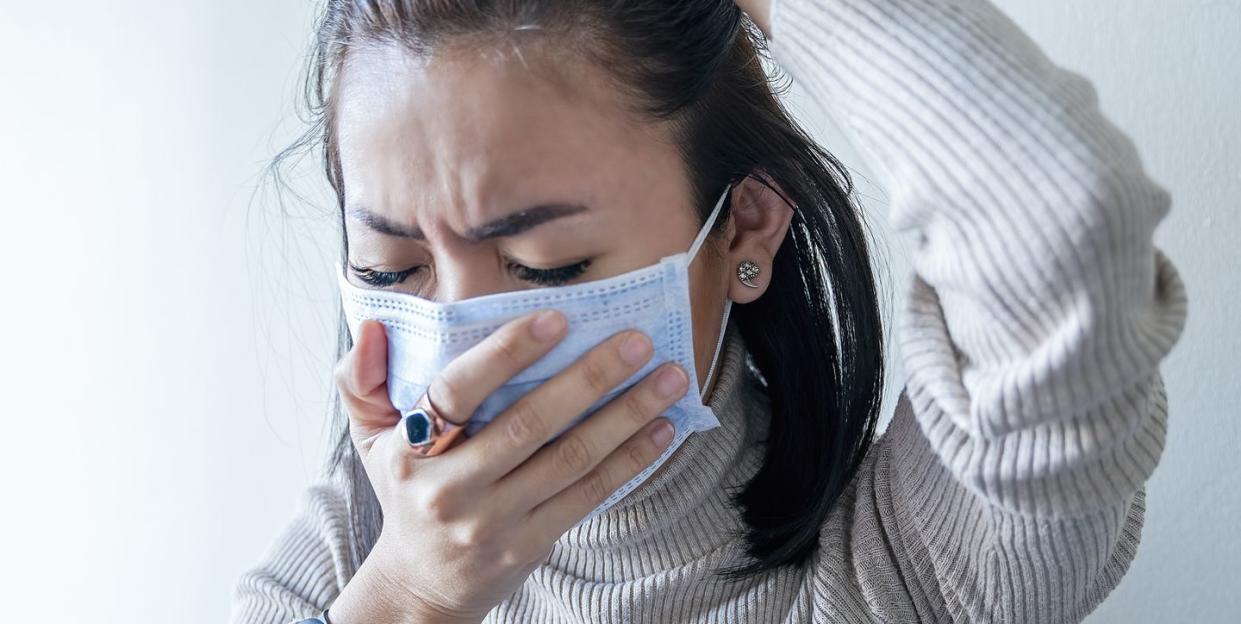Signs and symptoms of COVID-19

COVID-19 affects different people in different ways. The most common coronavirus symptoms include a fever or high temperature, a new, continuous cough, and a new loss of taste or smell. Other symptoms may include shortness of breath or difficult breathing, fatigue, muscle of body aches, a headache, and a sort throat.
If you have any of the main symptoms of coronavirus (COVID-19), the NHS recommends getting a test as soon as possible. However, it is important to stay at home until you have the results.
COVID-19, which has been declared a global pandemic by the World Health Organisation (WHO), has infected more than 22 million people worldwide, killing more than 783,000. While much about the virus remains unknown, such as where the virus originated, we know there are a number of ways COVID-19 can spread from person to person.
Dr Ravi Tomar, GP at Portland Medical Centre, explains the coronavirus symptoms to look out for, how to virus manifests itself in humans and the expected recovery period:
What is a coronavirus?
Coronaviruses are a family of hundreds of viruses. While the vast majority of these viruses only affect animals, so far seven coronaviruses, including this new virus, are known to have made the jump to humans.
Middle East Respiratory Syndrome (Mers) and Severe Acute Respiratory Syndrome (Sars) – are two of the best-known examples of coronaviruses which have been passed on to humans.
The new virus, officially called COVID-19, is the latest to have infected humans. COVID-19 is believed to have originated in a seafood wholesale market in Wuhan, China.
COVID-19 risk
Who is at a higher risk of severe illness from COVID-19? As with any virus, those with weakened immune systems are at greatest risk.
You are also identified as being at high risk if you are:
over 65
morbidly obese
have a underlying conditions such as heart disease, diabetes, kidney problems, cancer or HIV
COVID-19 signs and symptoms
It is estimated that COVID-19 has an incubation period of two to 14 days, meaning it can take up to two weeks for an infected person to show symptoms.
Most common coronavirus symptoms
According to the NHS, the main COVID-19 symptoms are:
a high temperature or fever – if you feel hot to touch on your chest or back
a new, continuous dry cough – if you cough for more than an hour, or three or more coughing episodes in 24 hours, or, if you usually have a cough, it is worse than usual
a loss or change to your sense of smell or taste – if you notice you cannot smell or taste anything, or your smell or taste is different to normal
However, a wide range of symptoms have been reported – ranging from mild to severe illness.
Less common symptoms of coronavirus
The Centre of Disease Control (CDC) has updated its list of possible symptoms to look out for, these include:
chills
shortness of breath of difficulty breathing
fatigue
muscle of body aches
headache
sore throat
congestion or runny nose
nausea or vomiting
diarrhoea
rash
confusion or dizziness
Loss of smell is different from cold and flu
Loss of smell, otherwise known as anosmia, or taste, or ageusia, has been commonly reported in people with COVID-19, especially among women and young or middle-aged people who do require hospitalisation, according to the CDC.
However, according to new research, published in the journal Rhinology, the loss of smell or taste associated with coronavirus differs from that experienced by someone with a cold of flu. Specifically, COVID-19 patients do not usually have a blocked, stuff or runny nose.
Researchers found that people with coronavirus experienced a “true” loss os taste, meaning that it was not linked to their loss of smell, and they really could not tell the difference between bitter and sweet.
It is believed that this is because coronavirus affects the nerve cells directly involved with smell and taste sensation.

How do I take my temperature?
For adults, if your temperature is above 100.4°F (37.8°C), you have a fever.
For children, a child has a fever if their temperature is above 99.5°F (37.5°C).
Symptoms of a fever include: sweat, a warm forehead, headache, shivers, aching muscles, a rash, loss of appetite and feeling weak.
Use a digital, ear or forehead thermometer to take your temperature using the following guidelines. If you do not have a thermometer, using the back of your hand to feel somebody's body warmth can be indicative of whether they have a fever.
What should I do if I have mild COVID-19 symptoms?
The current government advice outlines that those with coronavirus symptoms who live alone should stay home for at least 10 days from when their symptoms started.
For those who live with others, everyone in the household should not leave the house for 14 days, regardless of whether they have symptoms or not.
For those in good health, if they contract COVID-19, they are most likely to experience mild to moderate symptoms and will recover at home with rest and pain relief, such as paracetamol. However, it is still essential to self-isolate until told otherwise by a medical professional, as you could infect someone with a compromised immune system who could develop pneumonia.

When to go to hospital for COVID-19
The main reason people need hospital treatment is if they have trouble breathing.
If you are concerned or are struggling to breath, use the online NHS 111 coronavirus service to find out what to do. If you are unable to do this, you can call 111 by phone.
How long does it take to recover from COVID-19?
Recovery really depends on the strength of the immune system and the severity of the illness. For people with an otherwise healthy immune system, recovery is likely to be similar to that of other upper respiratory illness, such as flu.
People with mild symptoms may recover within a few days but many are finding the illness leaves them feeling exhausted and are taking several weeks to return to their normal activity levels. The more severe cases and those who develop pneumonia may take several months to recover to full health. Everyone's recovery is different and it's important to take things slowly.
How can I protect myself from coronavirus?
With no vaccine currently available for COVID-19, the most effective way to protect vulnerable members of society from COVID-19 if you’re experiencing symptoms is to self-isolate to avoid potential spread. You should also seek remote medical advice via the NHS 111 service.
If you are in the high risk group and have suspected coronavirus symptoms, seek medical advice immediately to ensure your symptoms can be monitored and treated appropriately. It's also worth reading our coronavirus prevention tips.
For more advice and information on basic protective measures against the coronavirus, visit the World Health Organisation website.
Last updated: 20-08-2020
You Might Also Like


